Are your ready?
Let's go back in time
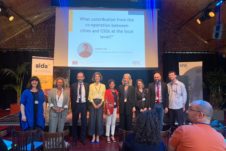
On the 7th of june 2023, the european platform of integrating cities (epic) concluded its three and-a–half-year project with a grand final conference held in brussels. The event brought together partners, local stakeholders, and external actors to share and discuss the results achieved during the project. The conference showcased the collective efforts of the epic community in fostering inclusive societies – from integration policies to changing the negative narrative about migration.
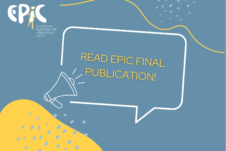
EPIC final publication (available in 8 languages) details the main elements of the EPIC journey, the main achievements and the lessons learned to continue working towards a society capable of delivering more inclusive services for all.
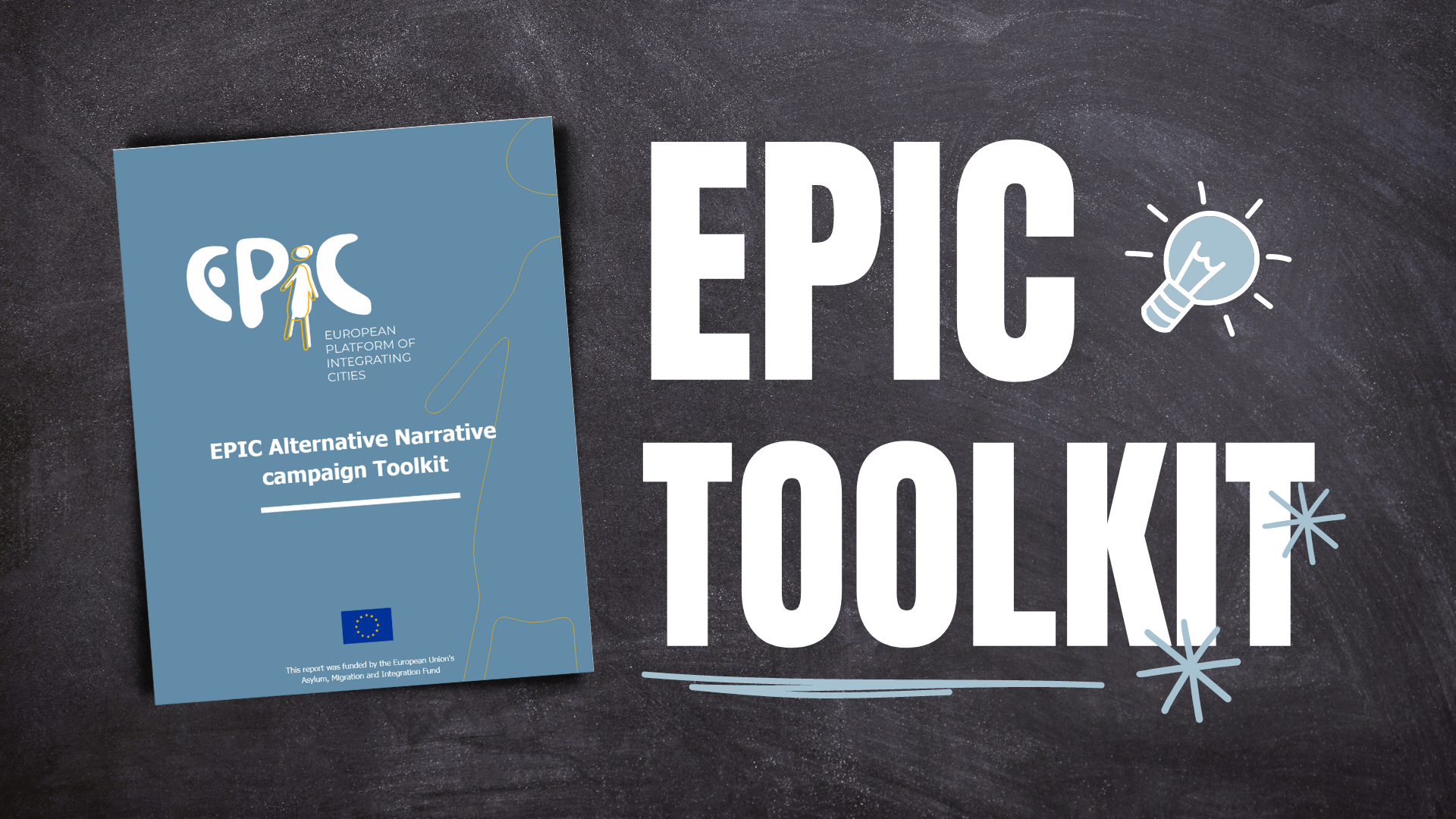
As part of the project’s overall objective to address various migration-related challenges, EPIC has made it a key cross-cutting activity for all its partners to analyse how appropriate communication can eradicate certain prejudices and misinformation among the local population. Now the document that has guided to create tailor-made strategies in 8 European cities is available for those who wish to embark on a similar journey.
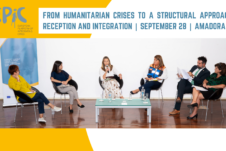
On 28th September 2022, EPIC brought together a range of stakeholders working on social integration in Amadora, Portugal, for its International Networking Path event : “From Humanitarian Crises to a Structural Approach of Reception and Integration”. Participants from across Europe had the opportunity to listen and interact with policy makers from local to international level, such as the Major of Amadora, NGOs and CSO representatives from different European countries working to make integration services for newcomers more accessible and resilient.
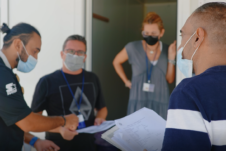
One of the main objectives of EPIC is to ensure the transfer of knowledge and experience on migrant integration among local authorities (LAs) and NGOs, and thus create a “European” dimension of migrant integration based on principles of solidarity, support, and efficiency. The 8 EPIC pilot projects seek to provide services and mechanisms that can facilitate and boost migrants’ integration at the local level, in the short and long term.
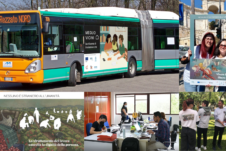
8 European cities launched alternative narrative campaigns seeking to deconstruct harmful narratives, to foster tolerance, respect and social cohesion. Narratives matter because they influence the way people think and therefore, they can lead to certain actions. If the audience is led to think migration is only a crisis and migrants can be a threat, they will be inclined to support exacerbated security policies, even if these do not respect fundamental principles of international law such as the right to asylum. Each campaign is unique and adapted to their respective communities.
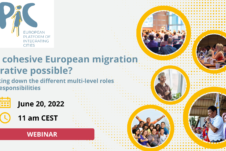
The objective was to debate and advocate for a cohesive European narrative about migration reflecting the large number of local movements around the EU to make migration policy more welcoming and tolerant.
The webinar counted on the presence of 3 keynote speakers that shared their experiences about migration narratives across three levels of governance, whether the war and humanitarian crisis in Ukraine may change the public perception of migration policies, how we can ensure meaningful participation of migrants and refugees in decision-making processes, and some concrete examples of pilot projects and raising awareness campaigns to improve migrant integration services and foster a more inclusive mindset in Europe.
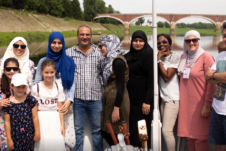
The EPIC project carried out a matchmaking activity during the last quarter of 2020 to pair each city involved in the project with expertise in a sector relevant to the priorities identified by another city seeking support to improve their capacities in the same area. Due to COVID-19 restrictions, these capacity building activities, mainly took place online including job shadowing city-to-city field visits and exchanges. This knowledge transfer was the basis for the 8 cities to design their respective pilot projects aiming at testing new public services able to tackle their main challenges.
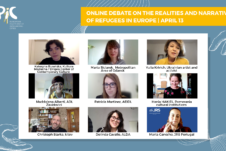
United in their support of the millions of people fleeing Ukraine, citizens-led and other local initiatives, especially from neighbouring countries, have led the way in emergency solidarity actions. However, this approach often lacks coordinated and sustainable strategies that ensure the reception of refugees from a human perspective. Also, it delegates citizens an enormous responsibility that primarily belongs to the public sector. What will happen when the goodwill of local communities is not enough to tackle the many complex issues a humanitarian crisis like this causes? Who will be held responsible at the end of the day?
To address these questions, participants in the 3rd EPIC webinar, held on April 13, discussed how human-based narratives and strategies should be placed at the centre of integration strategies.
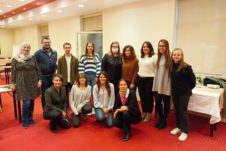
On 9-10 November 2021, the first International Networking path took place aiming to promote exchanges and fostering the emergence of joint policies and initiatives. On this occasion, EPIC partners from SSF, AEIDL, ALDA, the Metropolitan area of Gdansk, JRS Croatia, the Municipality of Sizak and UCL met in Croatia, while other partners followed the whole process on social media and video-conferencing. The event was an opportunity for EPIC partners to meet with stakeholders in Croatia to further exchange newly-acquired knowledge and experience.
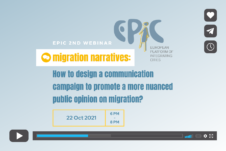
To learn from past and current campaigners for designing, implementing and monitoring alternative or counter-narrative campaigns aimed at overcoming stereotypes and prejudices against migrants, the EPIC project hosted the second in a series of webinars on migration stories on Tuesday 22 October. On this occasion, we have seen that designing a communication campaign to promote a more nuanced public opinion on migration can choose to address the root causes of prejudice by helping to combat fake news while raising awareness and informing the public about false information and providing fact-checking tools.
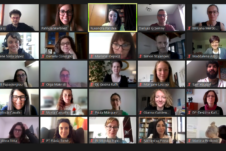
In May 2021 all EPIC partners participated in an intense 4-day online training on alternative and counter-narratives methodologies and tools. The experts Jon Salaj, Dariusz Grzemny and Ruxandra Pandea guided them to understand hate speech, its different definitions, causes and consequences, as well as how to counterbalance hate speech messages by building counter or alternative narratives based on a human right approach.
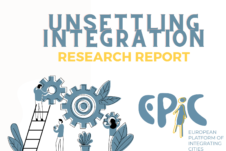
Research on migration and integration in Europe especially today is framed in a context pervaded by racism that cannot be ignored. This report uncovers issues surrounding the notion of integration, and related policies, based on the perception of the people who live it. In collaboration with 15 EPIC partners, a team of researchers based at the Development Planning Unit (UCL) collected and analysed people’s accounts of practices. 700 urban inhabitants helped us better understand the multiple registers given to the word integration, ultimately challenging it and moving beyond the state as a privileged unit of analysis

In November 2020 the EPIC partners met for a 3-day consortium meeting. The working groups analysed the research results obtained so far and specific priority areas for the project based on those findings. The meeting ended with the analysis of the main findings and review of the overall working plan for the project
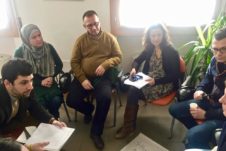
On 17th, 18th and 19th May, EPIC organised 3 focus groups with the representatives from local authorities and NGOS of the project.
The aim of the focus groups was to discuss existing practices of migrant integration collectively with partners in each case city, and to share challenges faced, lessons learned and what the needs are for their territory.
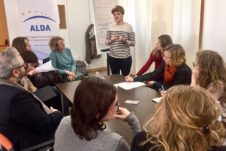
At the end of May, EPIC launched an online survey with the aim of gathering information on migration and integration practices across the EU. Open to host and migrant communities and practitioners, the survey invited participants to inform on strategies put in place for and by migrants to navigate the city during and after COVID-19. The results will help the project learn more about practices of inclusion and responses to displacement across different European cities.
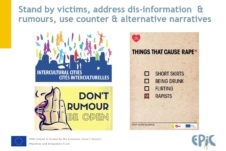
On 28 April 2020, EPIC organised the first of a series of webinars on migration narratives on the topic of ‘Hate Speech: understanding the phenomenon from different perspectives’. In times of crisis, ‘the fear of the other’ becomes a common part of public debate. Bearing this in mind, the webinar aimed to set the scene for what hate speech is currently in Europe, how it is defined, how widespread it is, and what solutions are there to tackle it.
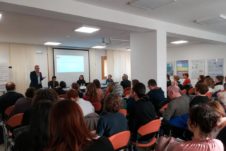
EPIC received a warm welcome from the municipality of Santorso with a public event announcing the start of the project. Project partners and work package leaders had the chance to present their objectives and work that will be undertaken within EPIC for the next three years.
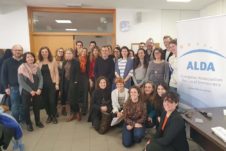
The EPIC project leader ALDA hosted in Vicenza (Italy) a two-and-a-half-day meeting to kick off the project. Organisation delegates from the 16-partners consortium held several plenary sessions and workshops to establish the best working methods and revise the whole project work plan and strategy.